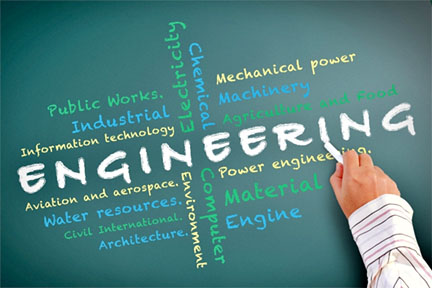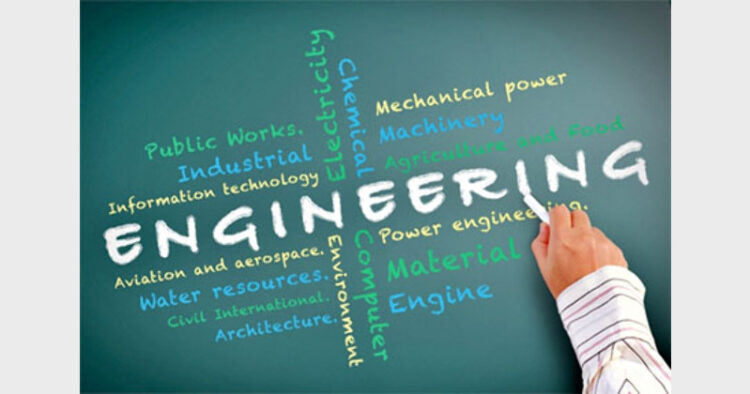The institutions and students must focus on diversified career prospects in the field of Engineering. With many choices within this career, decision must be made after a lot of planning
Dr Pradeep Kumar Singh
Engineering is a diverse field of study with many disciplines. At Undergraduate (UG) level, more than 100 disciplines are flourishing in various Engineering Institutions in the country. A large number of these have similar nomenclature. In general, many of the UG programmes are broad based with further specialisation at Postgraduate (PG) level. On the other hand, a few specialised programmes at UG level do exist, which may sometimes open up better job opportunities, but in general they narrow down the career scope in overall Engineering spectrum. In general, the engineering disciplines can broadly be categorised as (a) Broad-based fundamental disciplines (b) Derived/ interdisciplinary disciplines, and (c) Specialised disciplines.
The fundamental disciplines are the conventional disciplines of Engineering, being practiced over the millennia, and are being studied as part of the university curriculum over the centuries. Most commonly popular fundamental engineering disciplines are Agricultural Engineering, Chemical Engineering, Civil Engineering, Electrical Engineering, Mechanical Engineering, Metallurgical Engineering, Mining Engineering, Textile Engineering, etc. Two more disciplines, viz. the Computer Science & Engineering and the Electronics Engineering evolved in last 50-years can be considered to be fundamental engineering disciplines. All these disciplines follow standard nomenclature, are broad-based; and well recognised all over the world. Most of these disciplines provide plenty of job opportunities, both at public and private sector industries, and research centres. These also offer good flexibility for pursuing higher studies in interdisciplinary areas.
Diversification of Career Options
Although, individuals may have varied opinion about the disciplines, yet based upon the diversification of career opportunities, and the preference of the nature of jobs, these disciplines can be broadly classified as Class A – Computer Science & Engineering, Electronics Engineering, Mechanical Engineering, Electrical Engineering, Civil Engineering, etc., Class B – Metallurgical Engineering, Chemical Engineering, etc. and Class C – Textile Engineering, Agricultural Engineering, Mining Engineering, etc.
Other engineering disciplines such as Bio-medical Engineering, Bio-Technology, Electrical & Electronics Engineering, Energy Systems Engineering, Environmental Engineering, Instrumentation & Control Engineering, Marine Engineering, Mechatronics Engineering, Ocean Engineering, Safety Engineering, etc. can be treated to be derived disciplines. Some of these disciplines have evolved over the millennia, while others have evolved over the decades by combining the contents of fundamental disciplines. Some of these disciplines viz. Bio-Medical Engineering, Instrumentation & Control Engineering, Mechatronics Engineering, etc can be useful specialized disciplines at PG level corresponding to relevant fundamental disciplines. However, a few enthusiastic institutions offer these programmes even at UG level, which may not be appropriate, as the job opportunities in these disciplines may not be as much as for those in fundamental disciplines. Also, there are very limited options of making choice of programmes for higher studies.
Computer Science & Engineering/ IT
Some of the top companies that hire CSE engineers include Microsoft, Google, Yahoo, Amazon, IBM, Facebook, Oracle, Cisco, Infosys, TCS, and Wipro.
Some of the top institutes (Apart from IITs and NITs) include:
· IIT-BHU
· Indian School of Mines University-Dhanbad
· Indian Institute of Information Technology- Hyderabad
· BITS Pilani
Electronics & Communication Engineering
Some of the main recruiters of Electronic Engineers will be Bharat Electronics Limited (BEL), Electronics Corporation of India Limited (ECIL), Intel, Samsung Electronics, Sony, Toshiba, Philips Semiconductors, Texas Instruments, LG Electronics, Nokia, CISCO etc.
Some of the Best Institutes (Apart from IITs and NITs) include:
· Delhi Technological University (DTU)
· PEC University of Technology, Chandigarh
Mechanical Engineering
Recruiters include ISRO, DRDO, Indian Railway, ABB, TATA Motors, General Motors, Fiat, Reliance Industries, Reliance Power Ltd, Ashoka Leyland, Mahindra & Mahindra etc.
Best institutes (Apart from IITs and NITs) include:
· ISM (Indian School of Mines) University, Dhanbad
· Delhi Technological University (DTU)
· BITS Pilani
Electrical & Electronics Engineering
Some companies you should look out for during placements: Bajaj International Private Ltd., Bharat Heavy Electricals Limited (BHEL), Centre for Electronics Design and Technology, Crompton Greaves Limited (CGL), Siemens Ltd., Reliance power Ltd.
Best institutes (Apart from IITs and NITs) include Delhi Technological University (DTU).
Similarly the Marine Engineering and the Ocean Engineering are also interdisciplinary areas, and can be useful options at PG level for their specialized nature of study. Normally at UG level the students need reduced uncertainty in getting a suitable job, and thus these disciplines are less preferred. In general, the job opportunities for the specialised programmes are industry specific and thus, restricted to very limited portion of the spectrum of opportunities.
A few other important disciplines are Aerospace Engineering, Automobile Engineering, Industrial Engineering, Manufacturing Engineering, Production Engineering, Welding Technology, etc. In general, these disciplines can be considered to be the specialised sub-disciplines of Mechanical engineering. Similarly, other disciplines, such as, Paper Technology & Polymer Technology, appear to be the specialised sub-disciplines of Chemical Engineering. The Ceramics Engineering appears to be specialised sub-discipline of metallurgy or Material Science & Engineering. Being specialised in nature, these disciplines offer relatively restricted job opportunities, and thus are normally not preferred at UG level. However, definitely these specialisations can be useful at PG level in appropriate branch of Engineering & Technology.
(The writer is Professor & Former Head, Department of Mechanical Engineering, SLIET, Longowal)














Comments